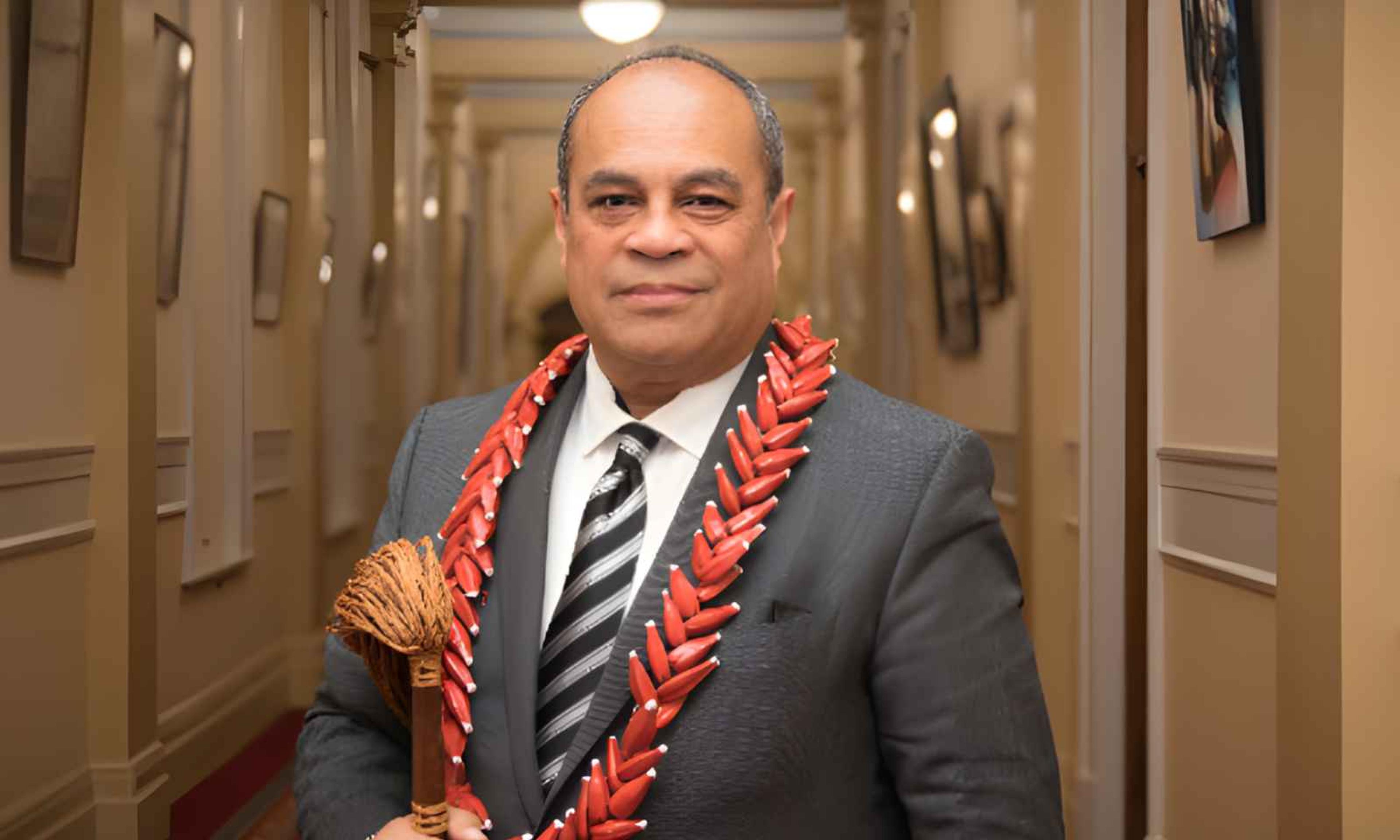

From left, former Te Whatu Ora board chair Rob Campbell, new commissioner Lester Levy, former health minister Dr Ayesha Averrall and Health Minister Dr Shane Reti.
Photo/supplied
'Health system needs more money'
Former Health Minister Dr Ayesha Verrall warns any change to Te Whatu Ora board could be detrimental to the interests of the organisation.




How Lice Movono’s fashion label was born from her journalism

‘Just a pause’: Ex-minister warns MPP faces uncertain future despite PM’s assurance


Immigration Minister signals major updates to NZ's RSE scheme


How Lice Movono’s fashion label was born from her journalism

‘Just a pause’: Ex-minister warns MPP faces uncertain future despite PM’s assurance
Replacing the Health New Zealand-Te Whatu Ora board with a commissioner will lead to cost-cutting throughout the organisation, Labour’s Health spokesperson Dr Ayesha Verrall says.
The board was sacked this week by Health Minister Dr Shane Reti because the government was concerned about the ministry's spending.

Reti said Te Whatu Ora recorded a $1.4 billion deficit by the end of the financial year, overspending around $130 million a month.
Health NZ was established when the previous Labour government merged the 20 District Health Boards aimed at reducing costs and duplication and eliminating the 'post-code lottery' of inconsistent care across the regions.
Te Whatu Ora chair Dr Lester Levy has been appointed as the sole commissioner, replacing the entire board.
Watch Ayesha Verrall's full interview below.
Te Whatu Ora has also been split into four regions with a new deputy chief executive brought in for each area.
The former board consisted of seven members but had recently been reduced to two members, with three choosing not to return and two opting to resign.
Verrall, a former Health Minister, told Pacific Mornings William Terite that the deficit Health NZ faced was due to the government's lack of funding for the department.
“I think what the government has done is fired a very good board, put one person in their place, really to drive cost-cutting throughout the health system," she said.
“That deficit that Health New Zealand is facing is because the government hasn't funded the health system enough … now they are in the position of having to cut costs and they're trying to blame everyone else but themselves.
“The governments underfunded the health system and no matter how you configure the management, it's going to be tough to get the services we need."
The health system needs more money, Verrall said.
But during a press conference, Levy said Te Whatu Ora did not need more money and his top priority was to cut waiting times, adding the deficit was "entirely unacceptable".
Levy, who was brought in as chair at the end of May, also wants to boost productivity and compassion.
“We just need to spend the money that we've got more wisely.
"Our most urgent and critical priority is to reduce waiting times. Second, a lot more healthcare could be delivered out of the resources being provided.
"Productivity is not an economic or financial construct .... productivity is a clinical construct. And we want to be consistent that every person actually gets this."
Prime Minister Christopher Luxon also told Terite there was more than enough money in the Budget for health.
Luxon said the merger of the District Health Boards (DHBs) into one organisation led to unnecessary bureaucracy, making it hard to get work done.
“There’s plenty of money going into the system but it's not being well managed.
“We are putting huge amounts of taxpayers' money into the healthcare system and I need to know that I'm tipping really good money into a high-quality, high-performing organisation.”
But Verrall disagreed. “I think Christopher Luxon needs to spend more time walking the wards of the emergency department floor, and he can go around finding examples of waste. There aren't any I can tell you that ”.
Former Te Whatu Ora chair Rob Campbell echoed Verrall's sentiments, saying a lot of work is needed to support Health NZ.
But cost-cutting isn't the answer, he added. “The idea that cost-cutting on its own is just nonsense.”
Cambell told Terite that New Zealand’s health system had been in decline for a while and it wasn't any one party's fault.
“There are two reasons why people run over a budget. One is that it’s been poorly managed, the other is that the budget was never any good to begin with.
“It's been a system that's been in long-term deterioration, and it's in all of our best interests that it's addressed sensibly rather than just shovelling things around.”